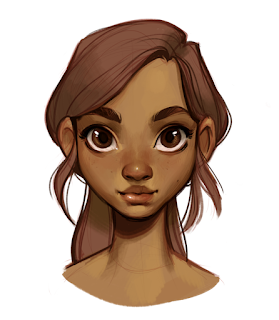The day was the 29th of September, 2003 and the day of our visit to Semien mountain ranges. Right from the early morning, we could hear the rhythmic Amharic music. The Meskel festival was in full swing.
We started at 05:30 in the morning. The roads were full of burnt wood and ash and uncannily resembled the south Indian festival, Bhogi. The streets were full of the acrid smell of burnt wood. Added to the cold climate, foggy weather and quaintly old fashioned houses, it looked as if we stepped out into a medieval world of kings, castles and wars!
But the loud purring of the van and the diesel smell that it was emanating brought us all back to the harsh realities of life.
The weather was cold, and we were wearing sweaters, mufflers, monkey caps and gloves. But still, it was biting cold. We would be driving 105 kilometres to the Semien mountain ranges, and we were thrilled but quite apprehensive at the chillness that we would have to experience.
The going was slow and Mulugeta our tour guide started grumbling. We were losing time and were forced to have breakfast in the vans. Mulugeta made a grudging concession. He gave us a scornful look and declared, “You can have a restroom/short tea break for fifteen minutes”. He had the demeanour of a haughty king doling out alms to his fawning peasants.
We did not wait for a second offer. The tour party jumped out and made a beeline to the nearest restroom. Most settled for Shai (tea without milk). My eyes fell on the roadside table tennis table. The table was hard, undulating and sported an apology of a net. The rackets were hard, lumpy and had a ‘blink and you will miss’ sponge padding.
The players were taken aback when I requested them to allow me to play. It was hard to play. The table was not exactly the correct size, and the surface was like Kanpur’s fifth-day cricket pitch. Once the ball hits some of the inundations, no one knew the direction that the ball would take.
I quickly adjusted and started playing confidently. Slowly the leering grins from the crowd turned into polite smiles and then into worrisome frowns. There was palpable tension. This was not on the cards. They could not let a firang (a foreigner) beat them in their courtyard.
Suddenly a thin as reed youngster unravelled himself from the dusty wooden stool. Without a word, he took the racket from my opponent. I knew it was the wild west, and the best gunfighter was here!! The town’s honour was at stake.
By now our touring party too was taking an interest. I tightened my mental loins and tossed the ball. The fight was on. But it was a lost cause. The local boy had too much advantage. He had the support, knew the conditions well, handled the racket better and knew exactly how the ball would move once it hit the crevices. To cut a long story short, the local champion bet me. There was a triumphant cheer, and as a token of appreciation, I gave the winner 5 birrs! That gesture made me very popular among the locals.
As we left town, Mulugeta lobbed in the next grenade. We would not be stopping at the handicrafts village of Beta Israel or the Ethiopian Jews. We were disappointed but not shattered. By then we knew that most of the Ethiopian Jews had already left Ethiopia and that the village, handicrafts and the local shops were all operated by the entrepreneurial Ethiopians who learned the iconic Jewish clay pottery from the Falasha before they migrated to Israel.
As we climbed into the mountains, nature manifested itself just like a peacock unfolds itself after a torrential downpour. The Meskel flowers were everywhere. They were so numerous that the entire mountain ranges looked as if God gave them a bath in turmeric! And in different shades too!
There were curving roads, misty fog, jutting mountain peaks, breathtaking meadows, long drives over flat surfaces and suddenly the way would end up in narrow ridges. We could see scary drops of over hundreds of feet into valleys on both sides. In many parts, there were no guard rails! A plunge into the valley would mean curtains!
The mountain ranges were rugged and jagged. The mountain peaks were not smooth and looked like as if they were thrown helter-skelter by some unknown force. I was already into the mood of the things, when a spirit spoke to me “You know, they are called gods own chess pieces. the local folklore is that gods played chess here and that is why all the mountain peaks resemble chess pieces. Simien is god’s playground”
I was taken aback, why would a spirit talk to me? Reality dawned. It was not any spirit. It was Mulugeta who was whispering in my ear! I took my ear out of the range of his mouth and thanked him. Now I knew why the spirit had the smell of stale tobacco and strong Ethiopian coffee!
The mountain ranges were awe-inspiring. The highest mountain in Simien is Ras Dashen which at 4550 metres is Ethiopia tallest mountain and 10th highest in Africa. Similarly, Ankwar stood at 4462 metres (12th highest in Africa), Kidis Yared at 4453 (13th highest in Africa) and Bwahit at 4437 (14th highest in Africa). All were in the Simien mountain ranges. No wonder Semien mountain ranges were a UNESCO world heritage site!
Out of 75 tallest mountains in Africa, 51 are in Ethiopia. Ethiopia houses the mountains of Africa. We were peering at some of the highest peaks in Africa, just like watching Mount Everest and watching alongside some of the highest mountains in the world. Scenes out of National Geographic channel!














































